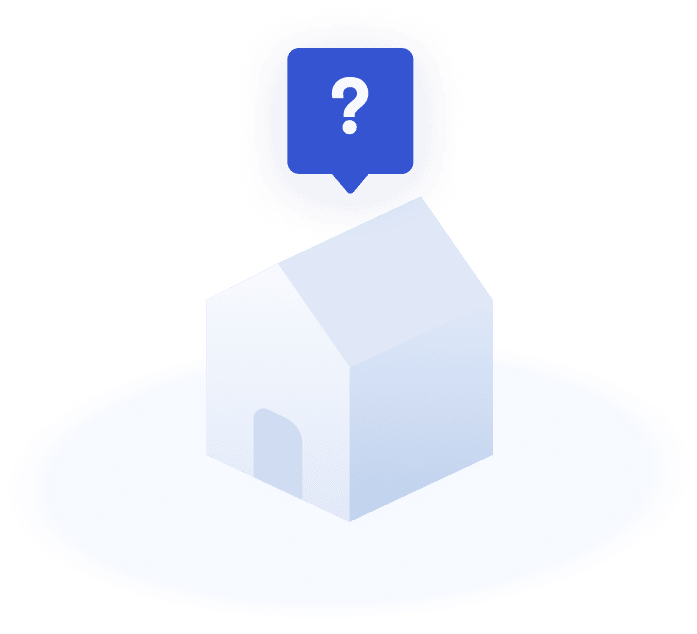What Are The Six Types Of Mortgages You Need To Know?

The plan to buy a home is one of our most significant purchases. Unfortunately, due to the sheer amount of money required, most people can not buy a house in cash. Instead, we have to opt for a mortgage. There are many types of mortgages available. The type and amount of the mortgage also dictate which house we can choose. Thus selecting the best option is very important.
However, all mortgages are not equal. Some loan plans are more useful for you than others. Similarly, some mortgages might be available to you, and some might not. How suitable a loan is depends on several factors. It also depends upon your financial condition and the loan type. You need to choose the most suitable one and avoid any problems down the road.
The best mortgage plan will be in sync with your savings and income. Also, as the value of your home will increase over time, the best loan plan should increase your equity. To help you choose the best mortgage plan, we will compare the six most common types of mortgages.
What Are Different Types Of Mortgages?
There are many types of mortgage packages available. Here is a list of our top six mortgage types you need to know.
- Jumbo Loan is suitable for buying expensive houses.
- Conventional Loan is ideal for the general public.
- Government Insured Loan is best for low credit scores and downpayment
- A fixed Rate Loan is helpful for a predictable monthly payment.
- Adjustable Rate Loan is best for short to medium-term holders.
- Interest Only Loan is useful for people expecting to get large sums later.
Let us study them in detail to see what loan type will work best for you.
What Is A Jumbo Loan?
The Federal Housing Finance Agency (FHFA) sets the upper limit of mortgages for different areas and types of houses. For example, in 2022, the upper limit is set to $647,200 for most of the country. Counties with higher home values have an upper limit of 150% of this amount.
A jumbo loan is a loan that exceeds the above limit. Jumbo mortgages are loan products helpful in buying high-value properties. They are also useful for buying properties in posh areas and high-living cost cities. However, this type of mortgage may not be available to everyone.
Pros Of Jumbo Loan
- The jumbo loan might be the only option to buy property in areas with high home prices.
- You can borrow large sums to purchase an expensive house.
- The interest rate is competitive like other conventional loans.
- The down payment is lower. While 10% is typical, it can be as low as 5%. In contrast, the down payment for conventional mortgages is around 20%.
- Flexible loan options can be available because this loan does not have to follow wholesaler restrictions.
Cons Of Jumbo Loan
- It needs a larger down payment. Although the down payment required for jumbo loans is comparable to conventional loans, the amount is huge, and a small percentage of it will also be huge.
- Jumbo loans require a very high credit score.
- Higher Debt to Income Ratio (DTI) of 45% or better is required.
- It has stricter documentation requirements than other loans.
- The lender will thoroughly check your financial status, like cash assets or savings accounts.
- You might be taking more financial risks than you can handle.
When Should You Go For A Jumbo Loan?
The Jumbo loan might be your cup of tea if you want to buy a house in an expensive area.
What Is A Conventional Loan?
Conventional loans are loans that the federal government does not back. Therefore, we can further divide them into conforming and non-conforming loans.
Conforming loans conform to the standards and limits The Federal Housing Finance Agency (FHFA) set. The upper limit for conforming loans is $647,200 for most of the country. At the same time, this limit stands at $970,800 for expensive areas.
Non-conforming loans do not follow FHFA policies. It is suitable in situations like
- The borrower is looking to buy a more expensive home
- The credit profile of the borrower differs from traditional loans.
Pros Of Conventional Loans
- If your credit score and debt-to-income ratio are reasonable, you can have a loan with only a 3% down payment.
- Although interest rates are a bit higher, the total borrowing costs are lower.
- You can use it to buy a primary or secondary home or investment property.
- Your seller may be able to contribute to the closing costs.
Cons Of Conventional Loans
- The FICO score requirement is high. Currently, it stands at 620 for first borrowing or refinancing.
- Down payments are higher than government loans.
- Higher DTI requirements
- It needs lots of documentation and verifications.
When Should You Go For A Conventional Loan?
If your credit score is higher and you can pay a larger down payment, this might be more suitable than other types of loans.
What Is A Government-Insured Loan
All welfare states take care of the primary needs of their citizens. Similarly, the U.S. government ensures that all eligible citizens can get a home on easy terms and conditions. Thus the federal government backs a government-insured loan through its agencies. This arrangement ensures that the government will guarantee repayment to the lender if you default. The government insures this type of mortgage through three agencies.
VA Loans
VA loans are low-interest mortgages for army personnel. The Department of Veterans Affairs (VA) is responsible for these loans. It provides service to active duty, veterans, and their families. VA loans offer low interest and flexible terms and conditions. Moreover, it has relaxed credit score, down payment, and insurance requirements. Even closing costs are minimum and may be seller oriented.
USDA Loans
These loans are available in selected rural areas. The Department of Agriculture (USDA) manages these loans for eligible areas. These loans help mid to low-income families and have relaxed or no down payments.
FHA Loans
The Federal Housing Administration (FHA) backs these loans. They are helpful for low credit scores or down payment homeowners. For example, a FICO score of 580 can allow you to get a loan by paying only a 3.5% down payment. If you can make a higher down payment, entertaining lower credit scores is also possible.
Pros Of Government-Insured Loan
- The down payment requirement is not that much.
- It has relaxed credit requirements.
- It is helpful for people who do not qualify for conventional loans.
- It is available to both repeat buyers and first-timers.
- VA loans need no insurance and a down payment.
Cons Of Government-Insured Loan
- The total borrowing costs are higher.
- Mortgage insurance is mandatory.
- Loan limits are stricter than conventional loans.
- The homeowner must live in the home.
- FHA loans need more documentation and verification.
When Is A Government-Insured Loan Best For You?
Take this route if you have a low credit score or can not qualify for a conventional loan. Similarly, VA and USDA-backed loans are better options for qualifying persons than traditional loans.
What Are Fixed-Rate Mortgages?
When studying different types of mortgage loans, fixed-rate mortgages have a special place. As the name suggests, its interest rate is constant. The interest rate in the market may change, but you will pay the same monthly payment for the next 15-30 years of the loan term. This setup removes uncertainty, and many prefer this loan due to its predictable nature.
Pros Of Fixed Rate Mortgage
- Monthly payments are fixed and predictable.
- You can plan your budget well.
- It gives you peace of mind for decades to come.
Cons Of Fixed Rate Mortgages
- As the lender is taking the risk of a possible increase in interest rates, they charge higher than variable-rate mortgages.
- If the interest rate falls, you can not benefit from it without refinancing, which is a hassle.
When Is A Fixed Rate Mortgage More Suitable For You?
If you don't like uncertainty and want to stay in the same house for several years, this loan option is right for you.
What Is An Adjustable-Rate Mortgage?
As the name suggests, the interest rate for these types of mortgage loans is not constant. It may be beneficial if you expect future interest rates to fall. Some mixed ARM products have a fixed rate for 5-7 years and then a variable rate for the rest of the period. The change in the rate may be annually or every six months. You need to study the agreement well to avoid any overpayments.
Pros Of The Adjustable-Rate Mortgage
- If the interest rate decreases, you may save on interest payments.
- You can enjoy a lower fixed rate in the first few years.
Cons Of The Adjustable-Rate Mortgage
- If interest rates go up, your monthly mortgage payments will increase. It will stretch your budget with a chance to default.
- If the home value falls, you can not get out of this mortgage type easily. As refinancing and selling the house will not be possible.
When Should You Go For An ARM?
If you want to stay a few years in your home, only then can you save on interest payments with this loan. However, you should be aware of the risk.
What Is An Interest-Only Mortgage?
In this type of loan, the borrower only pays for interest payments. The capital stays the same for some years. After that period, you must pay both principal and interest.
Pros Of Interest-Only Mortgage
- You can enjoy lower monthly payments for several years.
- Your cash flow will increase, and you can easily support your monthly expenses.
Cons Of Interest-Only Mortgage
- As you are paying only interest, you have little or no equity build-up.
- Your expenses might suddenly increase when the lender starts charging the principal amount.
- If you are poor at managing finances, it can get you in trouble.
When Should You Consider An Interest Only Mortgage?
This route is better if you expect future income, like bonuses. Similarly, if you can not afford higher monthly payments now, it can give you some years to manage your finances. However, the future risk of default increases with this type of loan.
The Bottom Line: Different Types Of Mortgages
- As we have discussed in detail, different types of mortgage loans are available in the market. Lenders classify loans into two broad categories. Conventional loans are loans that the government does not back. At the same time, the government backs government-insured loans. After this significant difference, the two loans may differ in their fine print and accessibility.
- There is no one size fits all answer here. Each mortgage type has its terms and conditions. Some are available to you, and some are not. It would help if you matched a mortgage type available with your unique circumstances and financial limits. Choosing an ideal matching mortgage type will be a significant step in owning your home.
- After finalizing the broad category of the loan, you may need to consider other costs related to the loan. For example, closing costs, discount points, and fees are essential when you are on a tight budget. After this step, you can start your home shopping.
